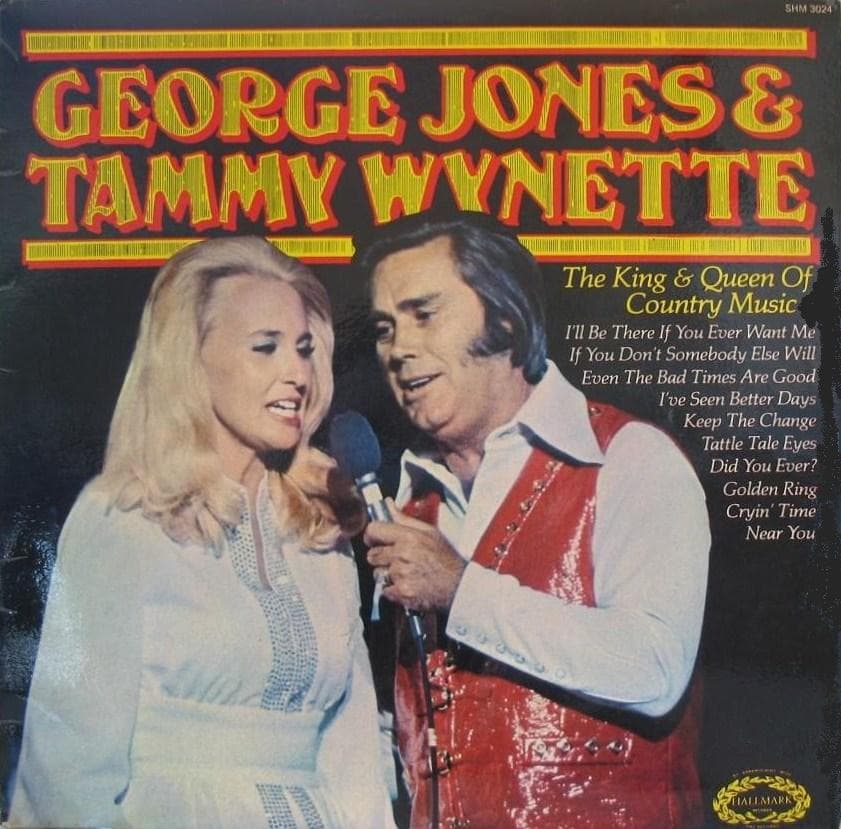
A quiet, spiritual comfort nestled in the voices of George Jones and Tammy Wynette, “Me and Jesus” reflects a deep, humble faith and shared solace.
When the legendary country duo George Jones and Tammy Wynette recorded “Me and Jesus”, they weren’t just singing another love song — they were offering a prayerful confession, an intimate conversation with something greater than themselves. Released on their 1972 gospel-country album We Love to Sing About Jesus (Epic Records), this cover of Tom T. Hall’s song stands as one of their more gentle, sincere moments.
From the very start, “Me and Jesus” carries the weight of humility. Written by Tom T. Hall, the song was first recorded by him, but in the hands of George and Tammy, it takes on a new resonance: their voices, individually marked by emotional truth, come together in a sort of spiritual duet, not of romantic intimacy but of shared faith.
Though We Love to Sing About Jesus didn’t climb high on the country albums chart (it is not listed with a peak on the main Billboard Country Albums chart) , the album was a deeply personal statement. Produced by Billy Sherrill, the record leaned into gospel themes with strings, choir backing (The Jordanaires and The Nashville Edition), and arrangements that could feel lush but reverent.
Interestingly, the only single from the album to chart was “Old Fashioned Singing”, which peaked at No. 38 on the U.S. country singles chart. While “Me and Jesus” was never a big radio hit for Jones and Wynette, its inclusion reflects something deeper in their partnership — a shared spiritual grounding beyond their personal and professional lives.
The story behind the song, and behind the album, is tinged with both devotion and tension. By 1972, George and Tammy had already recorded together on two prior albums: We Go Together (1971), which reached No. 3 on the Billboard Country Albums chart. Their second album, Me and the First Lady (released August 7, 1972), charted at No. 6. Their decision to record a gospel album so soon after is telling: they were not just a “country music couple,” but two voices yearning for something soulful, eternal.
Producer Billy Sherrill, known for his lush “countrypolitan” style, brought his full palette to the project. He layered vocal harmonies and background textures, yet amidst all that, the core remains simple: George’s rugged sincerity, Tammy’s emotional purity, and their mutual belief.
Critics have been mixed: some, like Stephen Thomas Erlewine of AllMusic, feel that the production can be “overwrought,” making parts of the album feel heavy. Still, they single out “Me and Jesus” as a bright spot — a heartfelt moment that allows George and Tammy’s voices to shine without the usual dramatic tension of their romantic duets.
In terms of meaning, “Me and Jesus” is deeply spiritual but also deeply human. It is not about grandeur or spectacle; instead, it’s a humble admission of dependence. The speaker in the song doesn’t boast of holiness or strength, but of companionship — a quiet, steady relationship with Jesus, through trials and simple days alike. When sung by George and Tammy, this takes on an even more poignant hue: two people who, in their famed partnership, had known heartache, fame, and very public life, turning to faith not as a performance, but as a refuge.
For older listeners — or anyone familiar with the arc of their story — that resonance can feel profound. In their marriage and their music, George and Tammy often projected strength and romance, but here, their unity is spiritual rather than romantic. It’s like watching two aged hands clasp in prayer, not because they share everything, but because they share something that transcends them.
“Me and Jesus” may not be their most famous duet, but it remains one of the most tender and sincere. It stands as a reminder that their collaboration wasn’t just about chart success or making hits: it was about real voices, real vulnerability, and real belief. In a way, the song feels like a gentle confession—a slow-burning candle in a quiet chapel, or a lullaby whispered during a restless night.
As time passes, for those who remember when country radio leaned closer to the church, this song offers more than nostalgia. It offers a kind of solace that only comes from two voices joined in faith: George Jones, the man known for heartbreak, and Tammy Wynette, the First Lady of Country, singing not to each other, but to something higher — and somehow, offering us a piece of that peace.